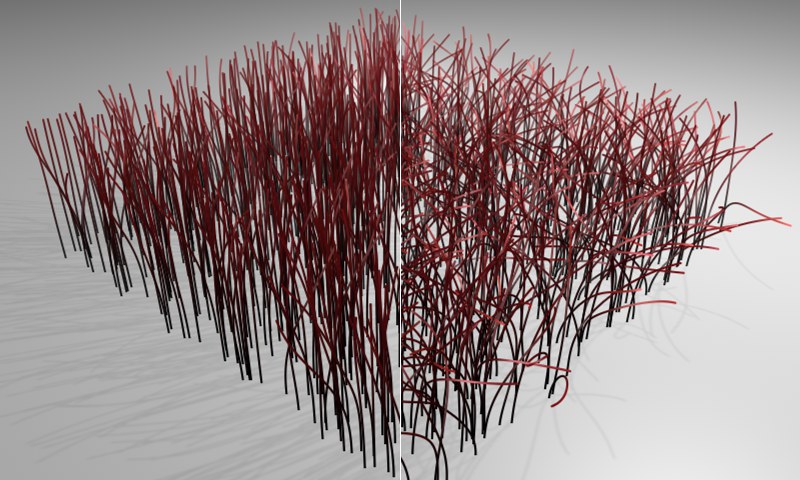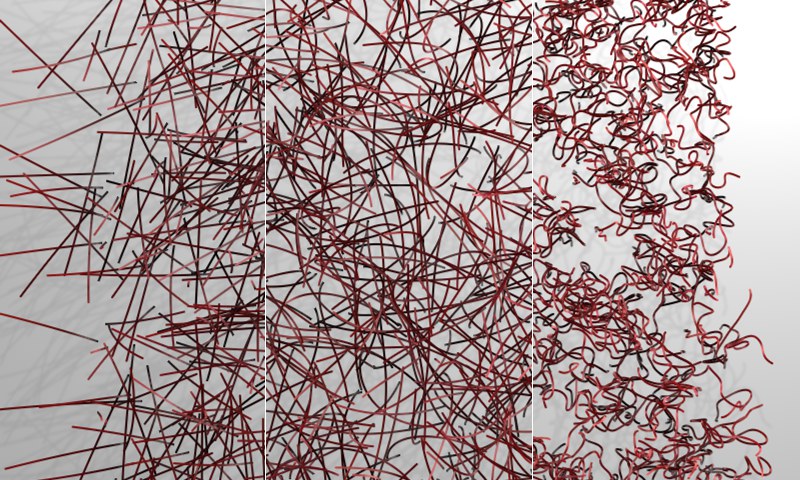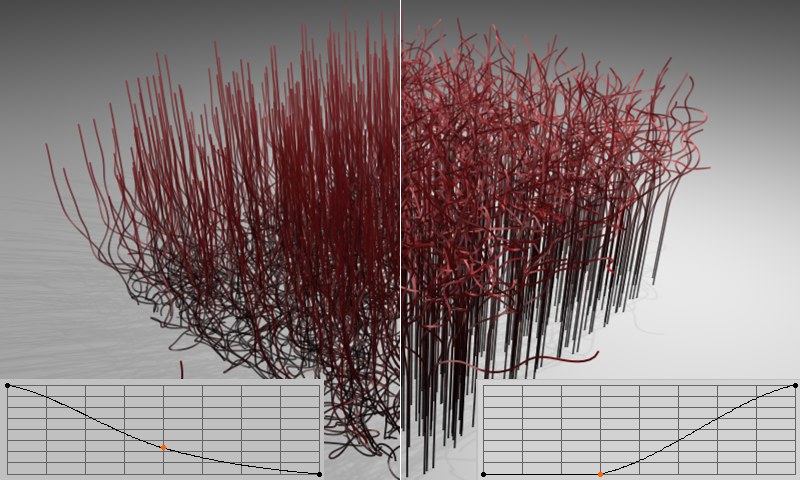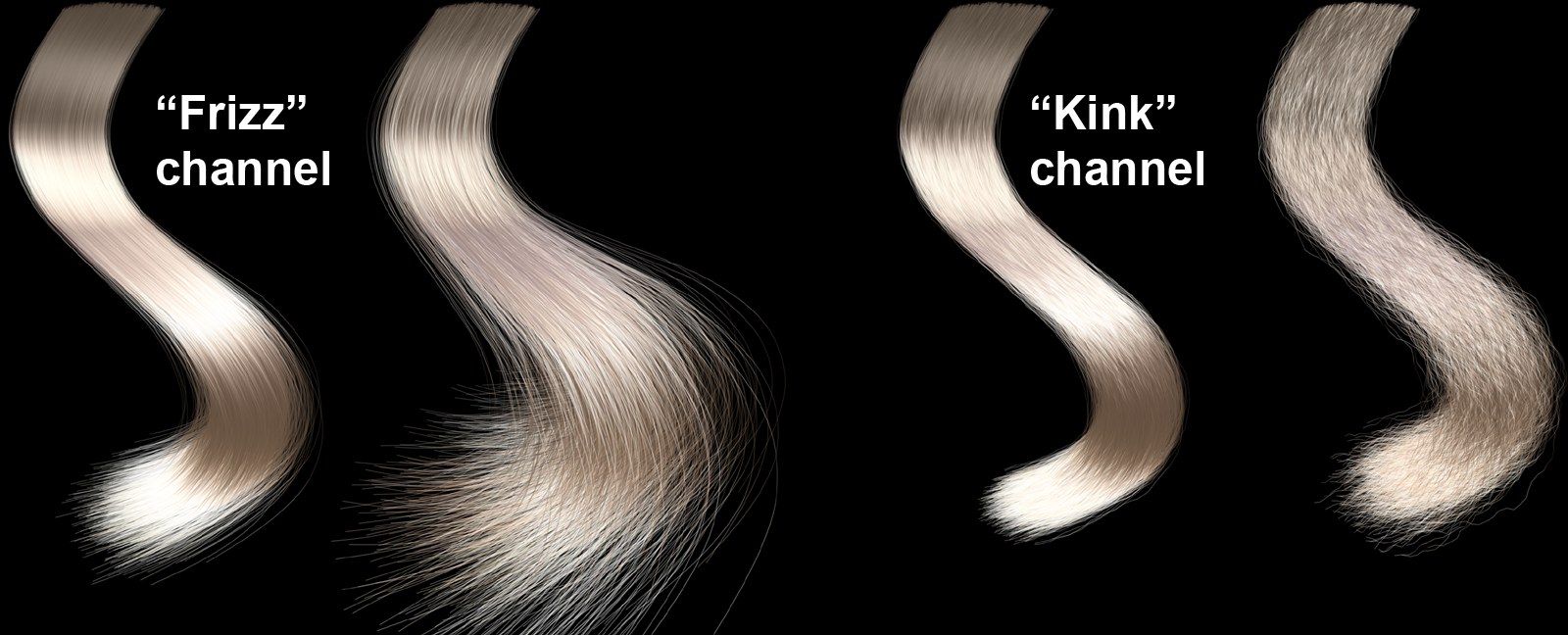 Hair MaterialBasicColorBacklit ColorSpecularTransparencyThicknessLengthScaleFrizzKinkDensityClumpTightenDisplaceBendCurlTwistWaveStraightenIlluminationAssign
Hair MaterialBasicColorBacklit ColorSpecularTransparencyThicknessLengthScaleFrizzKinkDensityClumpTightenDisplaceBendCurlTwistWaveStraightenIlluminationAssign
Frizz
Frizz lets you add chaos to your hair (To be exact, an internal Noise filter is applied). With Frizz you can let your hair bend in any and all directions, even over the entire length of the hair.
 Left: A lower Frizz
value. Right: A higher Kink value.
Left: A lower Frizz
value. Right: A higher Kink value.
Use the Frizz setting to define the strength of the frizz. The higher the value, the frizzier the hair will be.
Use this setting to vary the overall frizz of the hair.
Scale X[0..+∞%]
Scale Y[0..+∞%]
 In the example above, the hair is viewed from
above. The Scale X and Scale Y values from left to
right: 10%, 100% and 1000%.
In the example above, the hair is viewed from
above. The Scale X and Scale Y values from left to
right: 10%, 100% and 1000%.
Use these two settings to adjust the chaotic structure of the hair. The higher the value, the more often individual hairs will change direction. You can enter values far greater than 100%, if desired.
Use this slider to adjust the percentage of hair that should be affected by Frizz.
 The curves pictured (insets) result in the frizzes
shown.
The curves pictured (insets) result in the frizzes
shown.
Curve lets you define precisely to what degree, along the length of the shaft of hair, Frizz should affect the hair.
A texture loaded here will use its grayscale values to define the amount of Frizz.
The Effect of Frizz and Kink on Strands of Hair
Since the Frizz and Kink channels (see below) are both especially important when working with long hair, a comparison of the two is illustrated in the image below:
 How Frizz and Kink affect strands of hair. Each example shows a lower and a higher value for each
parameter.
How Frizz and Kink affect strands of hair. Each example shows a lower and a higher value for each
parameter.